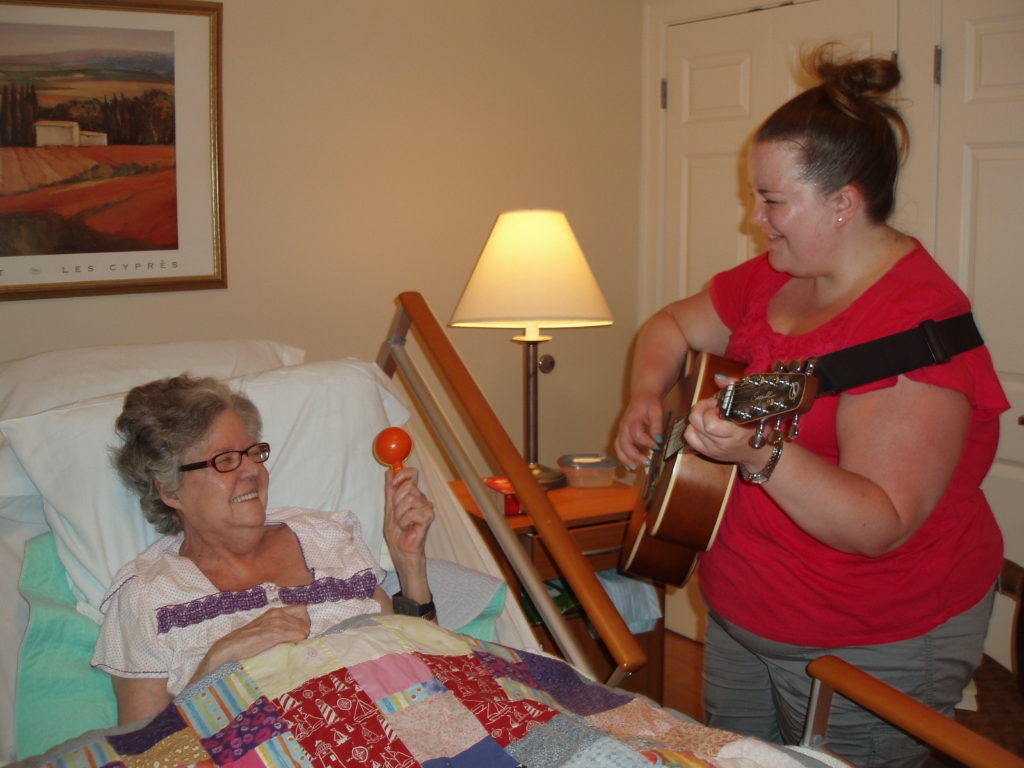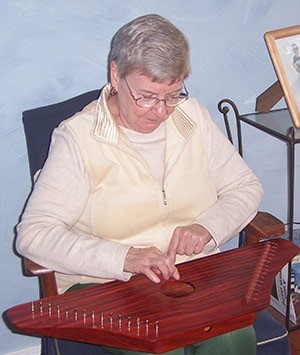What is hospice care?
Hospice care is a model for quality, compassionate care for people with a life-limiting illness or injury. It involves a team-oriented approach and includes expert medical care, pain management and emotional and spiritual support. The patient’s family and loved ones also often receive additional support as they confront their own feelings of anticipatory grief and bereavement.
Music therapy can be beneficial to patients in hospice or palliative care in a variety of circumstances and scenarios. Some ways in which music therapy can help include: pain management, enhanced communication, reality orientation, exploration of spiritual concerns, etc.
Many times patients in hospice are unresponsive or have very limited awareness of self or others. However, even patients in the later stages of illness have responded to the inclusion of music therapy, whether it be by a decrease in heart rate, more controlled respiration or moments of cognition.
The goals for patients in hospice care vary by case but often include addressing the five tasks of dying, music assisted life review, and decreasing the perception of pain, to name only a few.
Supporting caregivers of hospice patients
Music therapy also offers caregivers and family an alternative method of coping with their loved one’s illness or injury, as well as a forum to share common experiences. During this difficult time, music can help soothe grief while also providing a respite for the stresses of care giving for a terminally ill loved one. If a patient is cognizant and able to participate, music therapy sessions can provide them and their care givers a way to engage in meaningful time together. Music therapy is also an effective way to engage children who may be experiencing complex and big emotions that they cannot quite articulate.
A legacy project can provide a way for hospice patients and families to express their emotions. These projects can include audio/visual recordings, tangible gift giving or recording of original songwriting done in a music therapy session. These legacy projects offer patients a means to highlight their contributions to the world to share with future generations and are a treasured remembrance for families.
If you would like more information about hospice or palliative care, please contact us. If you work with an organization that provides hospice service and wish to explore adding music therapy services, please review this information sheet and contact us to discuss your needs.


 “beautiful” with just one pause. The other seniors smiled and cheered for her! From there she sang missing lyrics from all familiar songs and answered simple sung questions such as “How are you today?” Many of her peers commented after the session how wonderful it was that music could reach her in this way. Not only did she benefit from the musical stimuli but her peers saw her as a person again, something totally invaluable as a human being and especially as a human being with a disease such as dementia.
“beautiful” with just one pause. The other seniors smiled and cheered for her! From there she sang missing lyrics from all familiar songs and answered simple sung questions such as “How are you today?” Many of her peers commented after the session how wonderful it was that music could reach her in this way. Not only did she benefit from the musical stimuli but her peers saw her as a person again, something totally invaluable as a human being and especially as a human being with a disease such as dementia.